Forgot Your Cloth Bag At Home? You Can Now Rent One in Delhi Thanks to This Doctor
Delhi resident Dr Ruby and her organisation Why Waste Wednesdays Foundation is helping citizens find eco-friendly alternatives to plastic bags with the Vikalp campaign, which lets you rent a cloth bag for just Rs 20.
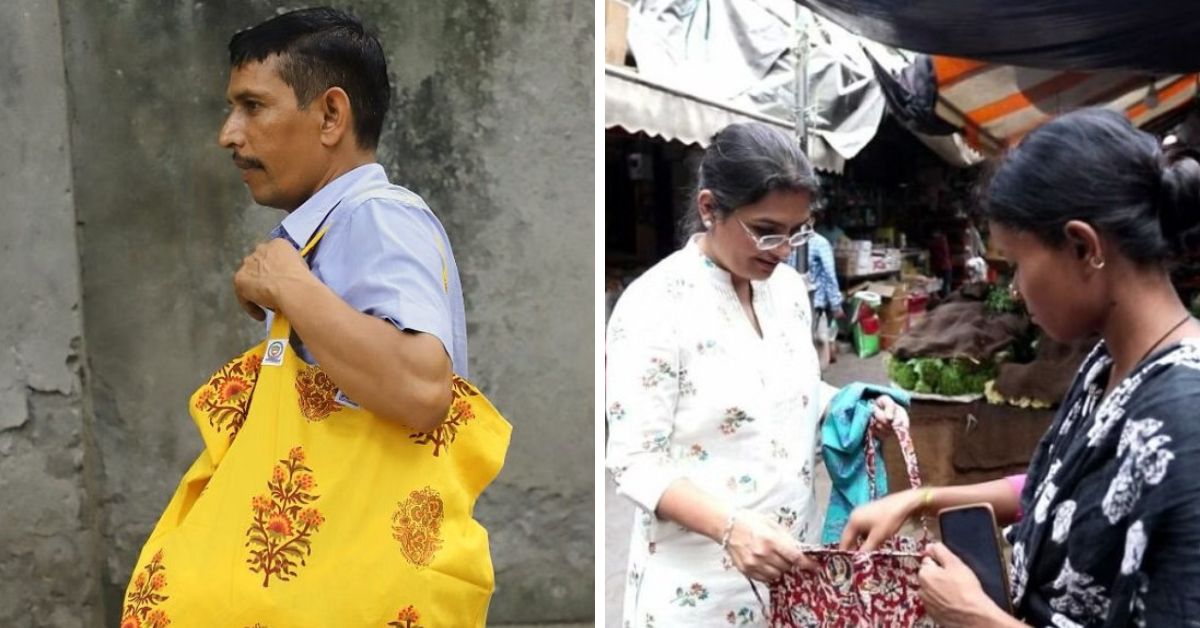
Even if you know they’re bad for the environment, plastic bags have a way of coming back to you — through unplanned shopping trips or spontaneous purchases, especially due to their widespread availability and ease of access for small store owners.
But Delhi residents now have the option to get cloth bags from shops on rent, thanks to an initiative by Why Waste Wednesdays Foundation headed by Dr Ruby, Dr Praveen and Yukti Makhija.
In order to control the growing problem of plastic waste in the city, the foundation launched a project called Vikalp in November 2021 at Green Park Main Market.
Their idea is to distribute cloth bags to shopkeepers around Delhi, so that residents can collect them by depositing a nominal fee of Rs 20. Once they return the bags to the Vikalp stall, they receive their amount back.
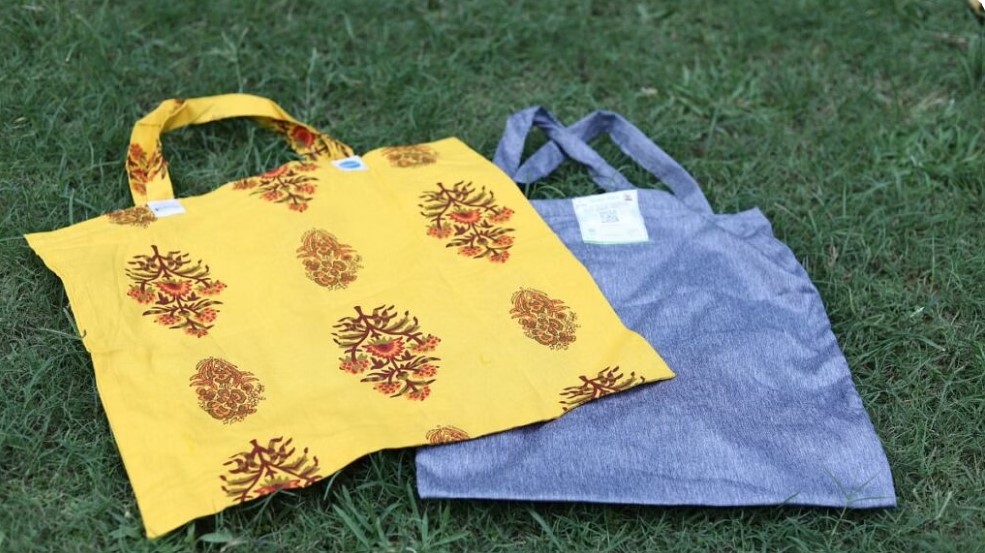
“The foundation’s vision is to create a sense of responsibility and ownership towards society and the environment, with the aim to improve overall living conditions. The name of the foundation suggests that one should invest time on a regular basis towards the betterment of our surroundings,” says Dr Ruby, an ophthalmologist.
Under the Vikalp project, over 10,000 cloth bags have been distributed among 350 shops in the capital city. Other than this project, the foundation has held awareness drives, puppet shows, workshops, and talks on waste management and the need to reduce single-use plastic in various parts of Delhi, in association with civic authorities.
“I have nearly five years of experience in managing waste at a community level by engaging various stakeholders. I’ve worked in behaviour change, waste management, wet waste composting, social responsibility and water conservation. Vikalp is one of our successful programmes which is getting great response from all parts of the city and beyond,” explains Dr Ruby.
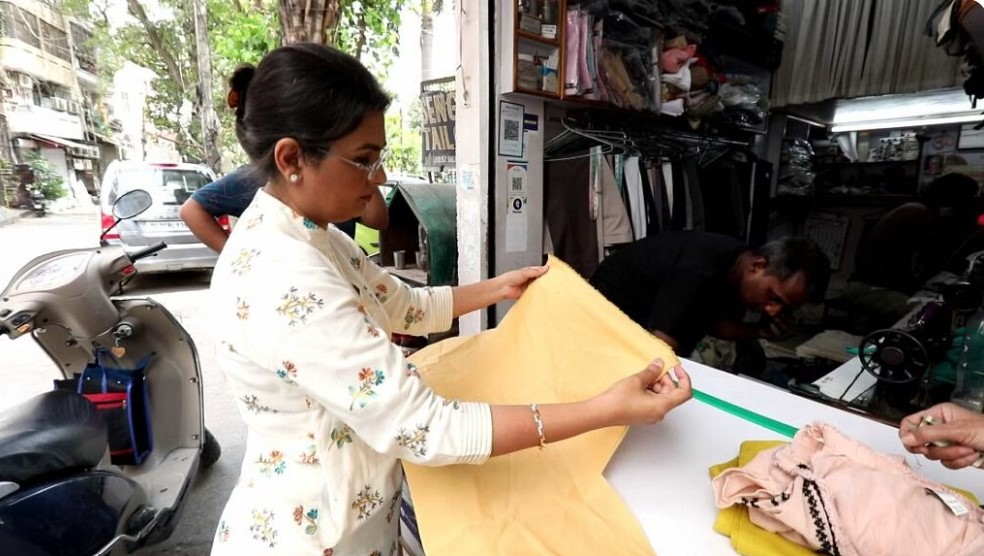
‘Vikalp’, which means an alternative or solution, aims to reduce single-use plastic by providing alternatives to the same at source. Shops associated with the campaign can be identified by stickers placed at the front. The bags also come with QR codes, which provide access to a full list of shops where they can be returned.
The bags come with a capacity to hold upto 8 kg worth of things. Dr Ruby says that due to the easy mechanism and ban on single-use plastic, shopkeepers readily agreed to the idea. “Customers are also happy as they don’t need to pay extra for the bags,” she adds.
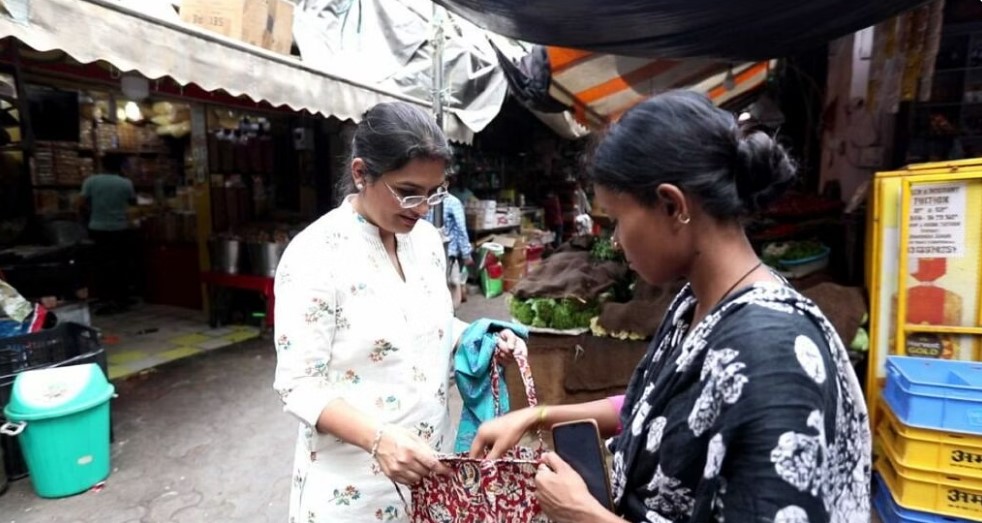
“Only if there is an alternative to single-use plastic bags will people stop using them. At present, around 30,000 – 40,000 plastic bags are being circulated in the market. It is said that if a person adopts one cloth bag, it saves 500 plastic bags a year. This will leave a great impact on the environment,” she explains.
The foundation collects cloth for the bags from tailors and through old clothes. Anyone can donate clothes for this purpose.
“We cannot completely eliminate plastic from our lives, even if they are banned. It’s a fact. But it is the need of the hour to avoid using single-use plastic. It not only affects us, but also the future generations and fellow living organisms,” warns Dr Ruby.
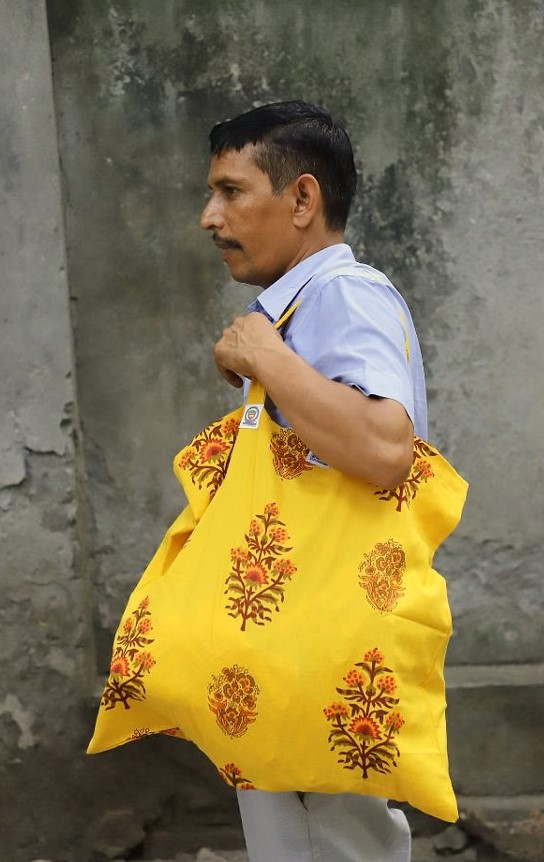
The members are all set to expand the number of shops to 700. Dr Ruby says they receive calls from various parts of the country to implement similar initiatives. “We are in talks with several NGOs and CSRs to spread Vikalp outside Delhi. Several webinars are conducted to spread the concept,” she says.
Contact or donate to the organisation here.
Read this story in Hindi here.
Edited by Divya Sethu; Photo credits: Dr Ruby Makhija
If you found our stories insightful, informative, or even just enjoyable, we invite you to consider making a voluntary payment to support the work we do at The Better India. Your contribution helps us continue producing quality content that educates, inspires, and drives positive change. Choose one of the payment options below for your contribution- By paying for the stories you value, you directly contribute to sustaining our efforts focused on making a difference in the world. Together, let’s ensure that impactful stories continue to be told and shared, enriching lives and communities alike. Thank you for your support. Here are some frequently asked questions you might find helpful to know why you are contributing?

This story made me
-
97
-
121
-
89
-
167












